| Article ID | Journal | Published Year | Pages | File Type |
|---|---|---|---|---|
| 2011934 | Pharmacological Reports | 2012 | 8 Pages |
Background and MethodIn this work, the contribution of NMDA receptors to the antidepressant-like effect of adenosine in the forced swimming test (FST) was investigated.ResultsThe pretreatment of mice with NMDA or D-serine was able to prevent the anti-immobility effect of either adenosine or MK-801 in the FST. In addition, the administration of a sub-effective dose of adenosine produced a synergistic effect with sub-effective doses of MK-801, ketamine and zinc chloride. Moreover, the immobility time of the mice treated with active doses of adenosine or N6-cyclohexyladenosine (CHA) plus MK-801 was not significantly different from that obtained with adenosine, CHA and MK-801 alone; by contrast, the combination between active doses of adenosine and CHA plus an active dose of the tricyclic antidepressant imipramine produced a greater effect in the FST than the administration of either drug alone.ConclusionTogether, the results suggest that the effect of adenosine in the FST is likely dependent on the inhibition of NMDA receptors mediated by the activation of adenosine A1 receptors.
